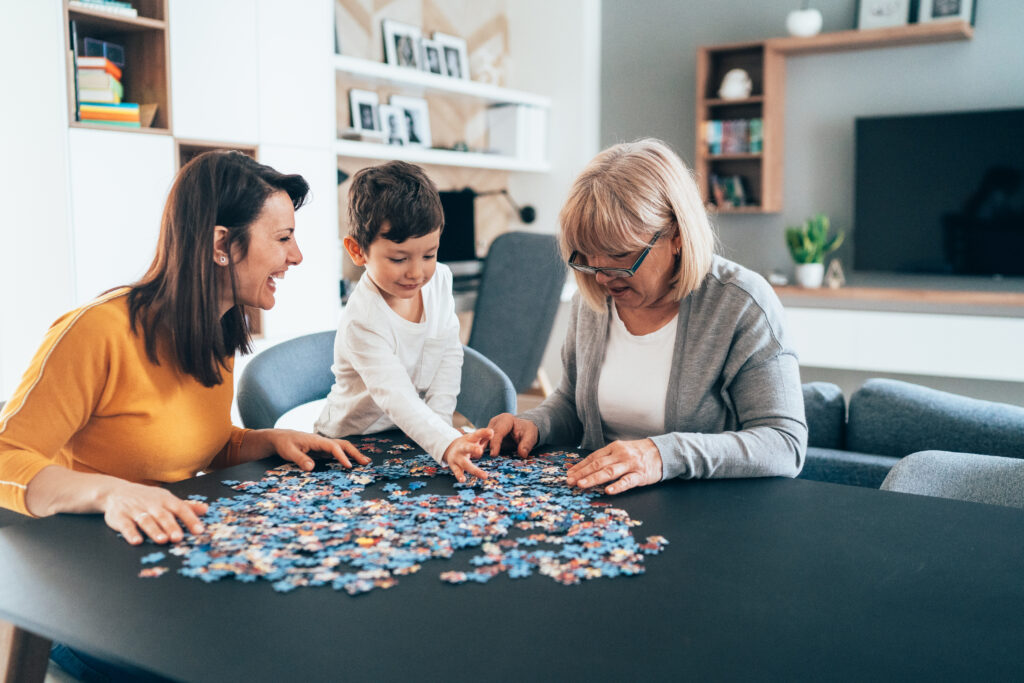sensory room in surgery helps children on the autism spectrum

For many children, going into a hospital for a procedure or surgery is a scary, unknown experience. But for children on the autism spectrum, it is often a traumatic event. Not only do they not understand what’s going on, but they enter an environment where triggers are all around them leading to extreme agitation. Their only way of coping is to act out in an effort to try and make the intense stimulation go away. Traditionally, the only answer to help these children calm down has been to prescribe medication in the pre-operative environment.
But in 2017, a group of surgery employees including Sean Antosh, MD, anesthesiologist; Katelyn Shellabarger, CCLS, child life; and Robin Lawson, RN, pre-operative nursing liaison, started looking at ways to create a more relaxed, sensory friendly environment to distract kids with autism before surgery.
Dr. Antosh knows firsthand that medicine plays an important role in surgery. However, if a child remains calm in the pre-operative area beforehand without the use of medication, they tend to wake up post-surgery in the same way, which leads to a better recovery. He tapped into other resources. Katelyn is the first child life specialist dedicated to surgery and Robin is retired special education teacher who worked with autistic kids in elementary and middle school.
The result: a dedicated sensory focused pre-operative room for kids with autism that can be individually tailored to the child’s needs.
“If we can take out the triggers and insert activities and items that sooth and distract the patient, it’s was a win for everyone,” Dr. Antosh explains. “It allows the patient to remain calm while the medical team does what we need to do to prepare the child for surgery. Let’s save the medication for when it’s truly necessary – back in the operating room itself.”
Prior to this program 49 percent of children with special needs received pre-anesthesia calming medication. Now only 36 percent do.
Katelyn in child life greets the patient and family in the room, prepares their masks and helps with the coping plan. “Surgery can be a traumatic experience for children with special needs, which is painful for parents, too,” Katelyn says. “The coping plans allow us to be proactive and get to know the child more so we can care for the patient in a more holistic way.”
With Robin’s help, the rooms are individualized for each patient prior to arrival at the hospital.
“Patients with autism are not like every other child,” Robin says. “We had to figure out away where we could meet them where they are. We truly are changing the way care is delivered.”
Providing innovative care for kids is just one reason Parent’s Magazine named Dayton Children’s as one of the top 15 children’s hospitals in innovation and technology in 2020.
The article features our sensory-friendly surgery experience. When kids come in on surgery day, they enter a space with familiar music, LED lighting in their favorite color, color changing floor tiles, headphones, fidget spinners or weighted blankets. They can even drive our remote-controlled airplane off to surgery!
Today there are three sensory-friendly rooms in preoperative services at our main campus.
care that goes above and beyond
Because every child deserves care that goes above and beyond, Dayton Children’s provides compassionate, expert care for kids of all ages. Find a provider, schedule an appointment, or learn more about conditions we treat today.

